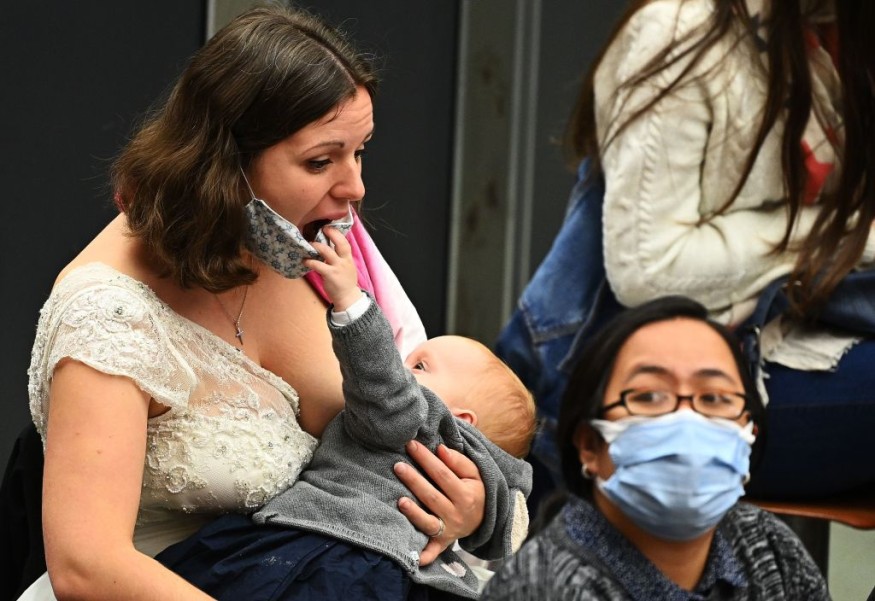COVID-infected women who are breastfeeding cannot pass the coronavirus to their children. According to a new peer-reviewed study, mothers should not be concerned about the effects of COVID-19, as there are no indications that the infection could be transmitted to their offspring through breast milk. The study is supported by numerous organizations in promoting the continuation of breastfeeding amidst the pandemic, especially to those who recovered and were able to receive the vaccination.
Can You Pass COVID by Breastfeeding?

According to the study, a small number of genetic materials from the coronavirus were detected from a small group of mothers recently infected with COVID-19. The genetic material was observed in the breast milk they produced, with a record of six percent in the group with an asymptomatic or positive test and nine percent in the group with a positive test alone. The study was led by scholars at the University of California and made possible through the help of data from 110 women.
Despite the fact that there had been a confirmation of foreign composition in breast milk, the experts said there is no evidence of genetic material, such as an infectious virus capable of viral replication. The authors mentioned that they could not culture the virus from the specimens provided, emphasizing that the genetic material detected on the liquids is 'transiently present.'
Throughout the studies conducted over infants and the coronavirus during the pandemic, no clinical evidence supports a COVID-19 infection to children via breast milk. According to a report by Forbes, UCLA pediatrics, molecular and medical pharmacology expert Paul Krogstad, who authored the research, said that milk from breastfeeding COVID-infected mothers has a very low chance to be considered a hazard.
The latest COVID-19 study was the most comprehensive research to date. It provided detailed and concrete scientific information that backs up several smaller studies that were previously presented in the field. In addition, the paper was administered by the leading international health institutes such as the World Health Organization (WHO) and the Centers for Disease Control and Prevention (CDC). With the findings, global advocates encourage mothers worldwide to continue breastfeeding.
Mothers Can Not Transmit Coronavirus Infection Through Breast Milk
Breastfeeding is the best way to nourish infants during their initial development. However, there were numerous circumstances where the activity could actually transmit certain types of diseases to the children. Among the most known problems that could be passed through breast milk are HIV and the human T cell lymphotropic virus, a common origin of neurological conditions, and leukemia. Moreover, cases of Ebola virus transmission through breast milk were recorded.
WHO suggests that mothers take precautions to prevent transmission of the coronavirus, like wearing face masks during feeding, washing hands before and after the activity, and proper cleaning maintenance of devices and surfaces should suffice.
There are still low vaccination rates among pregnant and breastfeeding mothers due to the lack of awareness and rampant misinformation across any media. Although there are vaccines that could infiltrate breast milk, CDC clarifies that COVID-19 vaccines don't. Also, breastfeeding moms only pass the natural antibodies to their children, along with the abundance of nutrients. The study was published in the journal Pediatric Research, titled "No infectious SARS-CoV-2 in breast milk from a cohort of 110 lactating women."
RELATED ARTICLE : Adverse Reactions From the COVID-19 Vaccine Could Just Be Imaginary Due To Nocebo Effect
Check out more news and information on COVID-19 in Science Times.












